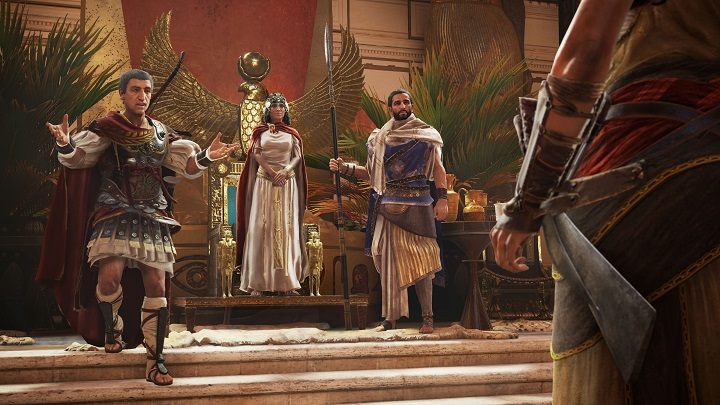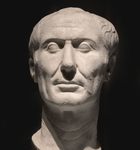Assassination of Caesar – Et tu, assassin, contra me?. History according to Assassin's Creed

- History According to Assassin's Creed - Conspiracy Theorist's Paradise
- Peloponnesian War
- Adolf Hitler – Nazi puppet of the order
- Assassination of Caesar – Et tu, assassin, contra me?
- Jesus of Nazareth
- Conquests of Genghis Khan
- October Revolution – Stalin's secrets
- Apple on the Moon – the Apollo 11 mission
Assassination of Caesar – Et tu, assassin, contra me?
Ubisoft has already given us a trip to ancient Egypt and ancient Greece, so many players speculate that the next installment will take us to Rome to complete a kind of "ancient trilogy." And it indeed seem a perfect environment for all kinds of political intrigue, plots, and assassinations. And the creators of Assassin's Creed already have the foundations for including Rome in the long history of the series – for example Julius Caesar, one of the most prominent Roman Chiefs, was a famous mentor of Templars, dubbed the Father of Understanding by them, to whom the motto of the order refers.

This statesman, who later became a dictator, initially supported the assassins – specifically, the protagonist of Assassin's Creed: Origins Bayek and his wife Aya. They helped him reach the Tomb of Alexander the great, and then supported his forces in the war with Ptolemy XIII, ruler of Egypt. In time, however, he and Cleopatra started favboring the mysterious Order of the Ancients, one of the organizations that formed the legacy of the Templars. Their cooperation allowed Caesar to consolidate his sole power, and the order to gain strength and expand in the Roman Republic. This, of course, alarmed Bayek and wife Aya, who decided to start a brotherhood of the Hidden, fighting in the name of truth and freedom. One of the first victims of the woman who assumed the famous moniker Amunet in the saga was Caesar, stabbed in the back first by her and then by 23 senators – just to be extra sure. However, this was not enough to stop the expansion of the Order of the Ancients in Rome.
KILLER AMUNET

Amunet is an important person in the universe of Assassin's Creed. Besides Caesar, she was also credited with the killing of Cleopatra. For years, we thought she was killed by a snake or snake venom, as explained in Assassin's Creed II. In the comic book entitled Assassin's Creed: Origins the creators made a small correction – Cleopatra took her own life, but she did so by drinking the poison brought by Aya – meaning there was no formal sentence on Cleopatra and she did not formally die at the hands of the Assassins. She killed herself because she had no other choice due to political situation. Needless to say, this "retcon" did not please some AC fans.
In fact, the reasons for the assassination were far simpler. The conspirators, led by Gaius Cassius Longinus and Marcus Junius Brutus, expressed personal disdain for Caesar, fear of his privileges, and finally opposition to the direction of reforms turning the Republic into a monarchy. The assassins inflicted 23 knife wounds, presumably hoping that people would take their side. However, this was not the case. The assassins of Julius Caesar were either captured and killed, or – like Longinus and Brutus, directly under Aya's authority – committed suicide. A struggle broke out in the power vacuum thus created, ending with the division of the Empire into three parts. The conspirators' fears of turning the Republic into a monarchy eventually came true one way or another – and its rulers, wanting to honor Julius Caesar, began to appoint themselves as emperors.
QUITE A FELLER

We perceive Julius Caesar mainly as an able politician and an excellent commander. However, his reign was a brutal one, reaping many lives. The conquest of Gaul by Caesar in 58-51 BC is often called the Celtic Holocaust – for a good reason. As a result, a third of the inhabitants of present-day France (about a million people) died, and another 30% of the Gauls became slaves. So remember that behind the popular phrase "I came, I saw, I conquered" implies the tragedy of millions of people.









